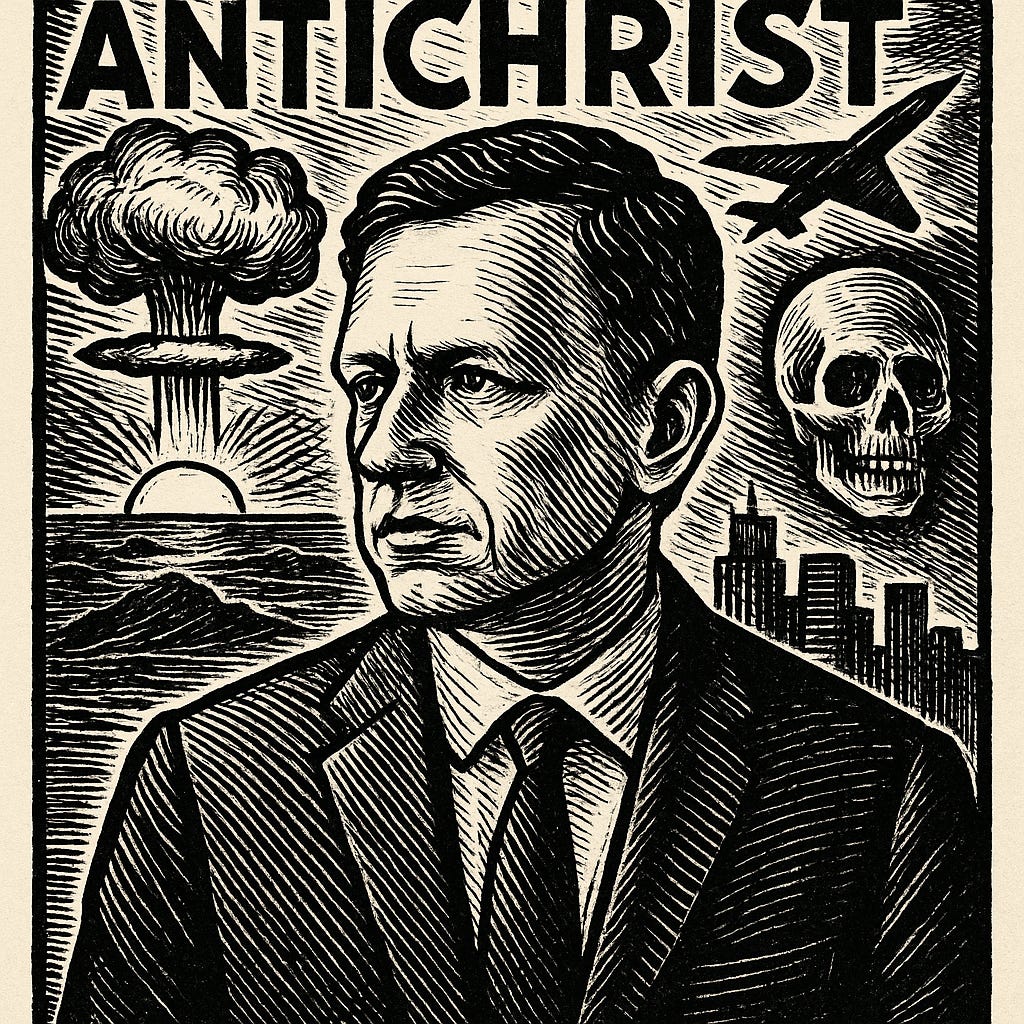Peter Thiel has never been content to play the part of a typical Silicon Valley billionaire. While many of his peers in the tech world chase longevity pills and dream up new social apps, Thiel is talking about the Antichrist. Not in a tongue-in-cheek way, not as a metaphor for market crashes, but as a framework for understanding how fear, technology, and political power intersect in the modern age.
In a 2024 interview with Stanford University’s Hoover Institution, Thiel laid out his argument in stark terms: “If the Antichrist were to come to power, it would be by talking about Armageddon all the time… The slogan of the Antichrist is peace and safety,” he said, citing 1 Thessalonians 5:3 (Christian Post). To Thiel, the danger is not that such a figure would come roaring in with obvious brutality, but that he or it would arrive promising security in exchange for obedience.
Thiel’s perspective is deeply rooted in his personal background. Raised in a Christian household and educated in Christian schools for part of his youth, Thiel went on to study philosophy at Stanford, where he fell under the influence of French theorist René Girard. Girard’s ideas about imitation, desire, and religious violence left a lasting mark. Thiel has since described himself as a Christian, though not bound to a single denomination, and has consistently argued that Western institutions remain more shaped by Christian thought than most people recognize (Fortune).
What makes Thiel’s vision striking is not that he sees evil in the future but that he imagines it cloaked in virtue. “In some ways, the Antichrist copies Christ, … hyper Christian, ultra Christian, and then maybe only ultimately, deeply anti-Christian,” he said in the same interview (Christian Post). The Antichrist, in Thiel’s view, is not a horned villain but a figure or system that borrows the language of salvation while tightening the grip of control.
Thiel points out that early 20th-century novels often portrayed the Antichrist as a charismatic global leader, but those stories never convincingly explained how such domination could be achieved. For him, the missing link is fear. In an era where nuclear war, pandemics, climate collapse, and runaway artificial intelligence all haunt the imagination, existential dread itself becomes a tool of governance. “That was the plot hole in the early versions,” Thiel argued in his Hoover Institution discussion, suggesting that modern crisis rhetoric provides the missing mechanism for global obedience (Hoover Institution).
This month, Thiel is taking those arguments public in a four-part lecture series at the Commonwealth Club of California in San Francisco. The talks will blend theology, history, and political theory, drawing directly on Girard’s work while extending Thiel’s case that modern societies are primed to embrace an Antichrist-like system under the guise of protection (Inc., Fortune).
The language sounds apocalyptic, but the logic is sober. Every decade introduces a new disaster narrative: nuclear winter, overpopulation, climate change, AI takeover. Each one comes with the same implicit bargain — sacrifice liberty to ensure survival. Thiel’s contention is that the words “peace and safety” are not harmless; they are the precise tools through which authority can be centralized.
Seen this way, Thiel’s warnings read less like eccentric theology and more like a bleak diagnosis of political reality. He is playing the role of a prophet in a tailored suit, pointing out that the most dangerous forms of control rarely arrive looking like tyranny. More often, they present themselves as rescue.
His lecture series runs throughout September in San Francisco, with recordings expected to be released afterward. Whether audiences view him as a philosopher, a futurist, or an eccentric billionaire, Thiel is pressing the case that the oldest religious warnings may be the clearest lens for understanding the perils of the present.
Tags: Peter Thiel, Antichrist, Armageddon, René Girard, Commonwealth Club lectures
TL;DR –
Peter Thiel, the billionaire co-founder of Palantir, has tied his Christian background and the philosophy of René Girard to a stark warning about the Antichrist. In a 2024 Hoover Institution interview, Thiel argued that the Antichrist would gain power not through open hostility but by exploiting fear of catastrophe, using the slogan “peace and safety” from 1 Thessalonians 5:3. He described the Antichrist as a figure or system that imitates Christ before ultimately opposing him, noting that modern fears of nuclear war, climate disaster, and AI provide the mechanism for global obedience. This September, Thiel is delivering a four-part lecture series at the Commonwealth Club of California in San Francisco, expanding on these themes with a mix of theology, history, and political theory. The series is expected to run through late September, with recordings to be released afterward.
AI Disclaimer: This article was produced with the assistance of artificial intelligence and is based on verified sources.
